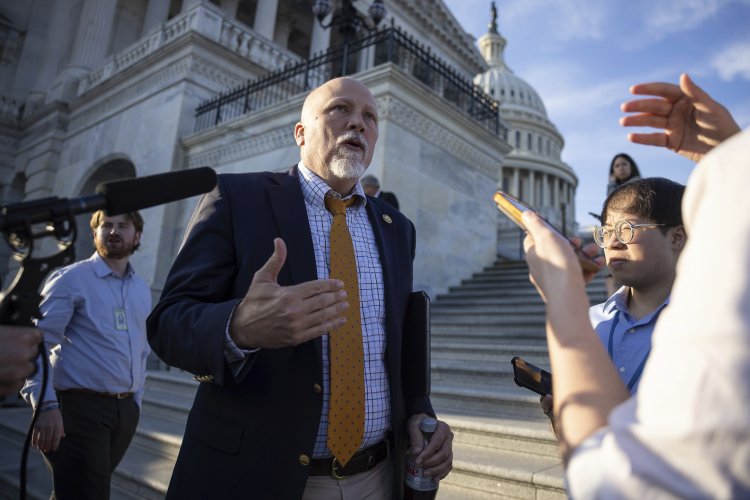Deficit hawks in the House oppose Senate's budget blueprint
Three Republicans indicated their opposition to the plan in the House, which could significantly jeopardize its chances of passing.

With Speaker Mike Johnson needing to maintain his slim majority of 220-213, he can only afford to lose three Republicans in a party-line vote. This dissent raises further questions about the progression of President Donald Trump's domestic policy agenda. Johnson has indicated a desire to finalize the fiscal blueprint for the megabill next week.
“If the Senate’s ‘Jekyll and Hyde’ budget is put on the House floor, I will vote no,” Rep. Chip Roy of Texas declared on X on Saturday, criticizing the Senate plan for lacking spending cuts. “Failure is not an option. And the Senate’s budget is a path to failure.”
Rep. Andy Harris of Maryland followed up, stating he "can’t support House passage of the Senate changes to our budget resolution until I see the actual spending and deficit reduction plans to enact President Trump’s America First agenda."
Joining them was Rep. Lloyd Smucker of Pennsylvania, who remarked he "certainly can’t support it as written" on X Thursday evening.
Additional budget hawks in the House also voiced their concerns over the plan. House Budget Chair Jodey Arrington called it "unserious and disappointing" on Saturday morning, though he did not explicitly indicate whether he would oppose it if brought for a vote next week. Rep. Keith Self shared Arrington's sentiments, labeling the Senate plan as offering only "measly" spending cuts.
Other House Republicans have labeled the Senate plan as fiscally irresponsible, emphasizing that any budget should aim for deficit neutrality and closely link tax cuts to spending reductions. However, the Senate proposal effectively postpones crucial decisions by setting different spending targets for critical committees in both the House and Senate.
For example, the Senate plan establishes a modest $4 billion baseline for spending cuts, while the budget blueprint passed by House Republicans in February called for $2 trillion in cuts.
There are notable disparities in the tax provisions as well. The House budget grants its tax committee $4.5 trillion for tax cuts, while the Senate budget employs an accounting tactic that offsets the costs of extending trillions in expiring tax cuts, allowing for potentially up to $800 billion more in tax cuts than the House plan.
In a letter to their members Saturday, Johnson and the other top three House GOP leaders stated that the approval of the Senate blueprint would "allow us to finally begin the most important phase of this process: drafting the reconciliation bill that will deliver on President Trump’s agenda and our promises to the American people."
"With the debt limit X-date approaching, border security resources diminishing, markets unsettled, and the largest tax increase on working families looming, time is of the essence," they urged.
However, at least one Republican suggested that the budget plan could be postponed while lawmakers work on the “big, beautiful bill” that Trump has called for. Harris proposed that the approval of the budget resolution—a critical step to initiate the party-line reconciliation process in the Senate—could wait until lawmakers draft the bill, allowing fiscal conservatives to assess its financial implications.
"If the Senate can deliver real deficit reduction in line with or greater than the House goals, I can support the Senate budget resolution," Harris confirmed, adding that the "Senate is free to put pen to paper to draft its reconciliation bill" in the interim.
It remains uncertain whether the GOP dissent will withstand Trump's influence, as he has previously pressured key holdouts to support earlier budget votes. This week, Trump insisted that “[e]very Republican, House and Senate, must UNIFY" behind the Senate plan, facing intensified pressure to demonstrate progress amid significant backlash in financial markets regarding his new global tariffs.
"Big business is not worried about the Tariffs, because they know they are here to stay, but they are focused on the BIG, BEAUTIFUL DEAL, which will SUPERCHARGE our Economy," he wrote on Friday, seemingly referring to the forthcoming megabill. "Very important."
Aarav Patel for TROIB News
Find more stories on Business, Economy and Finance in TROIB business












